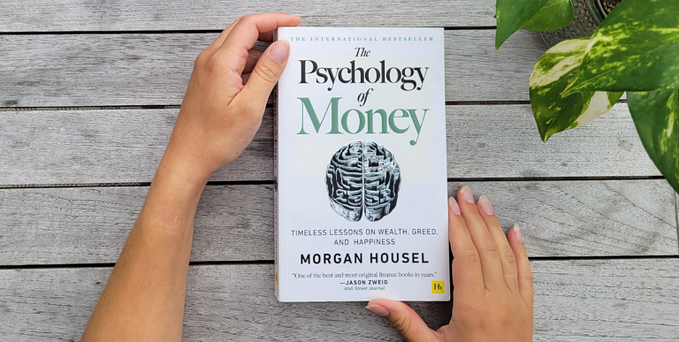How you carry yourself will often determine how you are treated: In respecting yourself, you inspire the same sentiment in others.
We Teach Others How To Treat Us
Be bold in your requests and you will get what you want.

When Christopher Columbus was trying to find funding for his infamous voyages, Columbus created the myth of a noble background: he now descended from the legendary Roman general Colonius and was part of the Italian aristocracy.
In actual fact, Columbus was the son of Domenico Colombo, who made a living selling cheese. Thus, he was able to establish connections with the Portugese royalty which eventually propelled him to Queen Isabella of Spain and the discoveries that changed the world.
How was Columbus, a mediocre sailor who mistook islands for vast continents, treated his crew badly, and the son of a cheese vendor, able to ingratiate himself with the highest royal families and discover the new world?
Fortunately, people cannot read our minds. Unfortunately, that means that we have to communicate our needs and for that to happen we must be assertive in conveying what we want, else resentment towards others, and ourselves, will build. Often we feel underappreciated, resentful out of our inability or lack of confidence to ask for what we truly want, whether it be in relationships, with colleagues, or in general life.
How can we be more assertive, stand up for ourselves, ask for what we truly want?
Well, we must understand that:
- You set your own price. How you carry yourself reflects what you think of yourself. If you shuffle your feet and lower your head, people will assume this reflects your character, but this is not you. After all, if you deserve it, you’ll ask for it.
- Project a sense of confidence completely out of proportion with your means. This was not aggressive or arrogant confidence. This was a quiet and calm self-assurance — the kind of confidence held by the old aristocratic nobility who felt no need to prove or assert themselves: they understood what they were worth and their actions reflected thus. Note that this is not arrogance which betrays insecurity.
Realising and implementing this allowed Columbus to elevate himself above the crowd, join the groups of the nobility who felt an instant affinity with him, for he carried himself just the way they did — destined for greatness.
How can we bypass supposed limitations and gain confidence?
We must first realise the following:
- Do not accept limitations that really are self-imposed.
As adults, we expect little from the world. We go from expecting and demanding the world, as children, to setting up boundaries and limitations as we get older. Our horizons have shrunk so much that as Robert Greene puts it, “We start to bow and scrape and apologise for even the simplest of requests.”
When Columbus demanded that the king of Portugal Joao II finance a westward voyage towards Asia, grant him the title Grand Admiral of the Oceanic Sea and 10% of the future commerce of any lands he found, despite not knowing anything about navigation or leading men, his demands were treated as legitimate. Joao II politely declined the offer.
The king assumed that unless Columbus, who had set such a high price on himself, was mad, which he did not appear to be, he must somehow be worth it.
The lesson?
Even if you are rejected, they will respect you for your confidence, and that respect will eventually pay off in ways you cannot imagine. - What we believe radiates outwards. This outward radiation infects everyone around us, who will think we must have reasons to feel so confident. People will thus treat you accordingly. Children ask for whatever they want and get it: their high expectations are their charm. People enjoy granting your wishes, just as Queen Isabella of Spain enjoyed granting the wishes of Columbus. Note that this was depending on Columbus asking for it.
- Realise what you want. What would the ideal outcome be?
Ask for it unapologetically in a way that conveys your sense of your own worth. There is no aggressiveness or sense of entitlement. The ideal outcome should be specific: what do you want and when do you want it?
The Strategy of the Crown
Realising this, we must employ what Robert Greene calls the Strategy of the Crown.
- Be overcome by your self-belief.
Even while you know you are practicing self-deception, act like a king. You are likely to be treated like one. Columbus acted like a noble, even altering his birth. - Act differently.
Demonstrate your belief in yourself by always acting with dignity, with firmness of purpose. Do not seem like an imposter: people will sense this and pounce.
Do as Jordan Peterson says, stand up straight with your shoulders back. - Be bold.
Make bold demands, give gifts to those above you, creating a kind of equality: you do not beg, yet it puts them in your debt. Project your sense of self-worth. This is incredibly important. Do not dilute your requests to minimise the chance of being rejected. You will get the crumbs. Forget hints and be direct.
People of undistinguished birth have used this strategy throughout history:
- The Theodoras of Byzantium
- The Columbuses
- The Beethovens
- The Disraelis
It is up to you to set your own price. Ask for less and that is just what you will get. Ask for more, however, and you send a signal that you are worth a king’s ransom. Even those who turn you down respect you for your confidence, and that respect will eventually pay off in ways you cannot imagine — Robert Greene, The 48 Laws of Power.
You must know what you want so you can be unafraid in your asking. Do not throw tantrums when you do not get what you want — that will only push others away. At the same time, do not allow yourself to be trampled on — use the Strategy of the Crown to stand up for yourself. Above all, don’t play it safe. Do not dilute your requests to minimise the chance of being rejected. Ultimately, you teach others how to treat you through what you tolerate, through what you say.
Be bold in your requests.
After all, what you ask for is what you get









